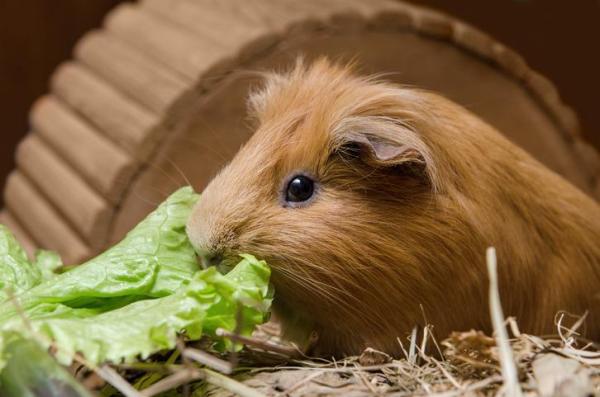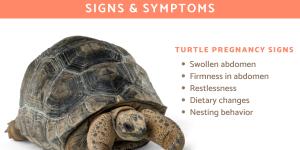How to Take Care of a Pregnant Guinea Pig


Due to the precocity of sexual maturity in guinea pigs, as well as the relative difficulty in determining their sex, it is not uncommon to adopt pregnant guinea pigs without being aware of it. That's why in this AnimalWised article, we're going to show you not only how to take care of a pregnant guinea pig, but how to tell they are pregnant in the first place. We'll detail their specific needs in terms of food and environment, as well as what to watch out for in terms of risks to both mother and babies. We'll also show you what you need in terms of delivery so you can be a cuy midwife if needs be.
Pregnancy in guinea pigs
Before we can tend to the needs of our guinea pig, we need to ensure they are indeed pregnant. The circumstances bringing the guinea pig into our homes means we may not even be sure of how old our cavies are, if they have yet reached sexual maturity or if they have been in contact with a male. However, if we suspect pregnancy, we can look out for the following signs:
- Increase in water and food intake
- Engorgement
- Development of mammary glands
- Pear shape with an enlarged abdomen
- Possibility of fetal movement when we place hands on their belly
To be certain, we'll need to consult our veterinarian. Using an ultrasound, it's possible to confirm the pregnancy and find out how many little sprogs our guinea pig is gestating. This can be anywhere from 1 to 6, generally the more fetuses, the easier it will be to tell if they are pregnant from looking at them. The vet will also be there to provide information about the care of our guinea pig as well as field any questions or doubts. Although during this period our guinea pig may seem to be leading a practically normal life, there are some important aspects we'll need to consider.
Feeding a pregnant guinea pig
Once a pregnancy is confirmed, the first thing we need to consider with our expectant guinea pig is their diet. The correct diet for any guinea pig, portions according to size, is:
- Hay (guinea pigs are completely herbivorous).
- Fortified hay pellets.
- Vegetables rich in vitamin C to prevent scurvy (this is especially if you do not have added vitamin C in the rest of their diet).
- Fruit and cereals as an occasional treat or reward.
- Vitamin C supplement if not enough in the rest of their diet.
After reviewing this necessary diet for guinea pigs, what else do we need to consider if our cavy is pregnant? The feeding of a pregnant guinea pig should also include the following modifications:
- Calcium enriched hay as pregnancy increases guinea pig calcium requirements.
- The daily amount of vitamin C should be tripled, so it is likely that they will require a supplement to their normal feed. Ask your vet for some specific help, but know that it is generally better to give it to them directly as vitamin C in the drinking water can dissipate quickly.
- Fresh, clean and abundant water is necessary. Accessibility is also important as their mobility may be lessened thanks to pregnancy.
- Do not feed them parsley. While parsley is a good source of vitamin C, it can also interfere with the pregnancy and may even induce a miscarriage.

Ideal environment for a pregnant guinea pig
In addition to feeding, it's also important to take the following precautions:
- Don't make any unnecessary changes to their environment or in the guinea pig's daily routine as this can become a stressor for them. Likewise, it's important to avoid loud noises, draughts or excess heat (guinea pigs are better at coping with cooler temperatures than hotter ones).
- Although their habits may be essentially very similar, they may have mobility problems due to the extra luggage. If you notice they have difficulty entering or leaving the cage, accessing the drinking water, etc., we must take measures to improve accessibility.
- If they live with other guinea pigs and we observe confrontations or aggressive behavior, it's a good idea to separate them. Keep the pregnant one in their usual cage and move any others if you don't think they get on together. If they live with a male, they can stay together until just before the pregnancy, but not during.
- The guinea pigs won't need to make a nest to give birth. Even still, it's important to keep a very clean cage or hutch.
- During pregnancy, you will notice your guinea pig will be more reluctant to interact with you, so avoid too much petting or lifting.
- In the case of any anomalies or worry, you should contact the vet. It is ideal if they are well versed in treating guinea pigs. If they are not, then you should ask your veterinarian for a recommendation of someone who is.
- Finally, don't engage in any activities which might cause them stress, such as bathing or brushing. Unless they are very necessary, you should postpone them until after the pregnancy.
These are the best guidelines of how to take care of a pregnant guinea pig, especially if it is a healthy female. However, there are some risks which need to be considered in case they may arise.
Risks for guinea pigs during pregnancy
As we said previously, guinea pigs reach sexual maturity early. With an average life expectancy of about 5 years, they reach sexual maturity at about 2 - 4 months. From 10 months of age, a female guinea pigs pelvic bones become fused. This means that if they have not yet had a litter, their rigid birth canal can prevent the exit of their offspring. This means a cesarean section is likely required, but this is also a risky procedure for any animal. If we do not know the age of our guinea pig or if it has not given birth before, it is advisable to ensure a vet checks on the cavy and we follow their advice closely. The ideal time for a guinea pig to be pregnant is between 4 and 7 months.
On the other hand, during their pregnancy, it is important to know that the likelihood of a pathology known as toxemia is increased. This is a serious metabolic disorder and potentially fatal for the guinea pig if not detected during the early stages of pregnancy. it can occur in females a couple of weeks before the birth and even up to a week afterwards. It is manifested by immobility, hypersalivation (drooling) and, with blood tests, hypoglycaemia. There are occasions when the guinea pig will suddenly die without presenting symptoms. Risk factors include obesity and advanced age.
How to know if my guinea pig is about to give birth
Taking care of a pregnant guinea pig also includes the time of delivery. One of the biggest uncertainties during any pregnancy is knowing when the event will take place. Although we know that a guinea pig's pregnancy will last about two months, it is impossible to know the exact day of delivery. Additionally, it is not always easy to detect the symptoms which indicate an imminent birth, since there are little changes in their visible behavior.
One of the few ways to predict an imminent birth in your guinea pig is to check the pelvic bone. If we put our finger over the genitals of our guinea pig, we will notice a bone. If we can see that it has separated, with an approximate distance of 1 cm, we can predict that the birth will happen some time in the next few days (usually up to ten). We must bar in mind that this test is not an exact determination and that it is not always easy to detect it. There are also some cavies which can present this separation for a long time before the onset of labor.
Once the birth begins, the guinea pig will stay immobile and the pups (name for baby guinea pigs) will be birthed quickly. If you are wondering how long it takes for guinea pigs to give birth, it usually lasts around 10 minutes to half an hour. The entire process should not take more than an hour. There are some possible complications which can arise, which we discuss below.

Delivery complications for pregnant guinea pigs
usually, a guinea pig delivery will not require much assistance on our part. It is usually a quick process which the cavy will prefer to do on their own. We mustn't intervene unless there is a specific complication such as:
- Breaking the amniotic sac: after they are birthed, the amniotic sac needs to be broken by the mother with her teeth. If this does not occur, for whatever reason, we may need to do it ourselves. We need to ensure the sow (mother) isn't going to do it and that it is necessary. We should ask our vet for help on how to perform this action safely, otherwise we may do inadvertent damage.
- Taking too long: if your guinea pig is in childbirth for more than an hour, it implies there may be a problem such as dystocia (a type of obstructed labor). If this is the case, we need to ring a vet right away for help on what to do.
- Bleeding: bleeding is normal during childbirth. However, if this amount exceeds a tablespoon, then a vet's consultation is needed to rule out any problems.
If we register any anomalous signs, especially of pain or agitation, then we should request veterinary assistance.
The end of the labor will be evident with the expulsion of the placenta. It is completely normal for the guinea pig to not only east this, but the amniotic sac and umbilical cord also. The baby guinea pigs will need to wean after about 24 hours, but they will eat solid hay in about 3 days. This is why you need to keep up the feeding schedule as before, especially with the enriched calcium hay. Despite this independence, they will suckle for approximately one month. After this birth, it is very important to separate males and females to avoid new pregnancy. Without a dominant male, any nearby males will try to mate with the mother.
While it can be rewarding to bring new guinea pigs into the world, the gestation process does provide a risk to the guinea pig. Importantly, it also provides ethical problems about bringing guinea pigs into a circumstance where they will not have the right care as you may not be able to look after or properly rehome the newborn cavies. This is why responsible guinea pig owners practice sterilization or at the very least consider it as an option.

If you want to read similar articles to How to Take Care of a Pregnant Guinea Pig, we recommend you visit our Gestation category.








